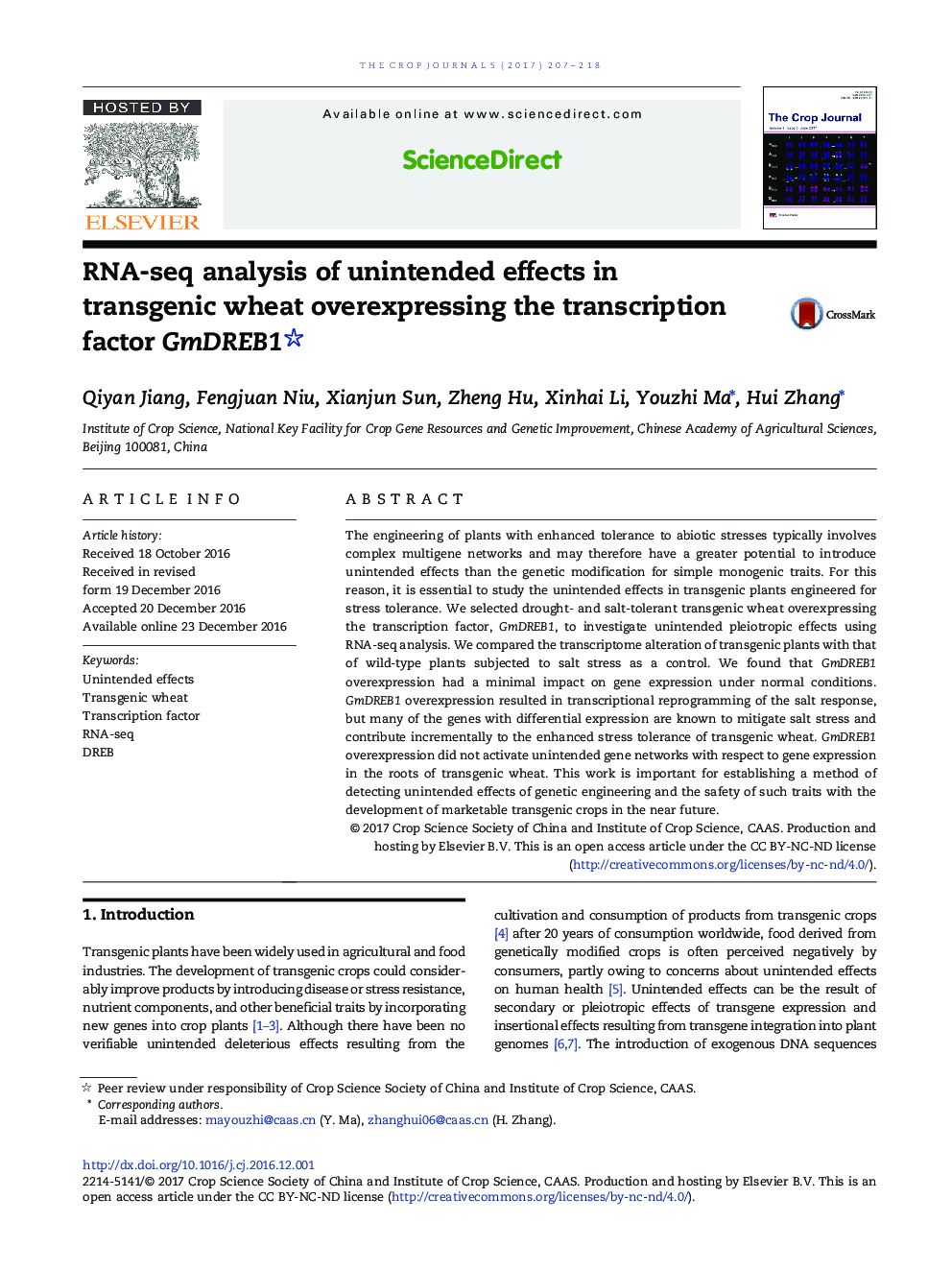| Article ID | Journal | Published Year | Pages | File Type |
|---|---|---|---|---|
| 5520778 | The Crop Journal | 2017 | 12 Pages |
The engineering of plants with enhanced tolerance to abiotic stresses typically involves complex multigene networks and may therefore have a greater potential to introduce unintended effects than the genetic modification for simple monogenic traits. For this reason, it is essential to study the unintended effects in transgenic plants engineered for stress tolerance. We selected drought- and salt-tolerant transgenic wheat overexpressing the transcription factor, GmDREB1, to investigate unintended pleiotropic effects using RNA-seq analysis. We compared the transcriptome alteration of transgenic plants with that of wild-type plants subjected to salt stress as a control. We found that GmDREB1 overexpression had a minimal impact on gene expression under normal conditions. GmDREB1 overexpression resulted in transcriptional reprogramming of the salt response, but many of the genes with differential expression are known to mitigate salt stress and contribute incrementally to the enhanced stress tolerance of transgenic wheat. GmDREB1 overexpression did not activate unintended gene networks with respect to gene expression in the roots of transgenic wheat. This work is important for establishing a method of detecting unintended effects of genetic engineering and the safety of such traits with the development of marketable transgenic crops in the near future.
